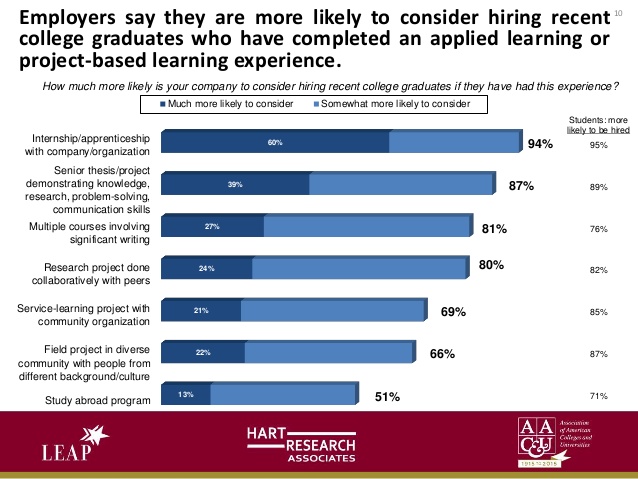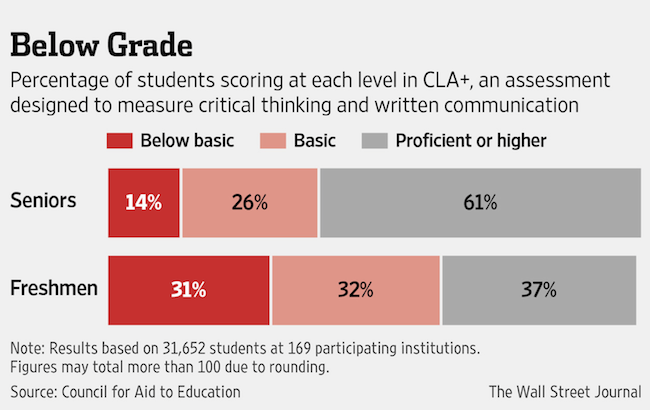Students and employers also disagreed when it comes to their schools’ performance. Just 42% of employers believe colleges and universities are doing a good job in preparing students for entry level jobs, with 51% believing schools need major to moderate improvement. That contrasts heavily with students in the survey, where 74% considered their schools to be doing a good job. The number drops to 36% approval from employers when asked if schools were preparing graduates for advancement and promotion (compared to 64% approval from students).
TEST RESULTS SHOW SIMILAR REASONS FOR CONCERN
While the AAC&U survey results may be an eye-opener, recent test results validate many employers’ sentiments. From 2013-2014, the Collegiate Learning Assessment Plus exam was given to nearly 32,000 students at 169 colleges and universities. And the results weren’t pretty: Four-out-of-ten test-takers lacked the skills to handle white-collar work.
That was the headline from the Wall Street Journal, at least. Although this test doesn’t cover specific subject areas, the Journal notes that it does measure “intellectual gains made between freshman and senior year…assess(ing) things like critical thinking, analytical reasoning, document literacy, writing and communication—essentially mimicking the baseline demands for professionals.” The test works off a scale of 400-1600, with freshmen averaging 1039, while graduating seniors scored an 1128 collectively.
Overall, 14% of seniors fell below the minimum requirements, with 40% total failing to reach a proficiency rating. And the truth could be even worse than the data shows, notes Richard Arum, a New York University sociology and education professor whose research has chronicled how undergraduates’ critical thinking and writing skills have flatlined. He points out that there were nearly 5,000 fewer seniors taking the tests, meaning the weaker students had already dropped out.
On a positive note, the Journal points out that biggest test gains were made by minorities and lower income students. Overall, these scores could be a red flag to employers, says Debra Humphreys in the Journal. “Employers are saying I don’t care about all the knowledge you learned because it’s going to be out of date two minutes after you graduate … I care about whether you can continue to learn over time and solve complex problems.”
In short, based on these results, you can only wonder if students truly understand what employers want –and what it takes to succeed outside the classroom.
DON’T MISS: HOW EMPLOYERS RANK THE BEST UNDERGRAD PROGRAMS













Questions about this article? Email us or leave a comment below.